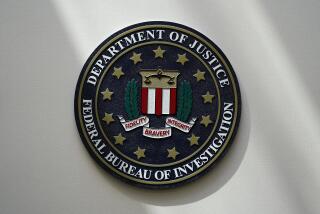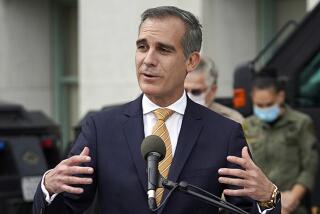U.S. Spies and Envoys
- Share via
Your article “Secret Messages by U.S. Spies Angers Envoys” (Dec. 24) is really nothing new. It is part of an ongoing effort by the State Department to establish its supremacy over all federal activities outside of the U.S. In 1961, President Kennedy declared that each American ambassador should take direct responsibility for all U.S. activities in the country of his assignment.
As a young foreign service officer at the time, I was part of a small team that designed a mechanism to implement the president’s directive. Later, I became executive assistant to Ambassador David Bruce in London. I recall vividly the day I triumphantly entered the ambassador’s office to describe the agreement I had just negotiated with the legal attache. I told Bruce that the senior FBI agent at the embassy had agreed to furnish Bruce with copies of all of his cable traffic to Washington. Bruce was dubious.
A day or so later I was summoned to Bruce’s office to inspect what had just been transmitted to J. Edgar Hoover. I stared at dozens upon dozens of groups of 5-letter “words,” that spelled nothing. The legal attache had used a one-time pad coding system common to the intelligence community; the matching pad required to decode this message was under the FBI’s sole control at headquarters. Bruce smiled wryly and welcomed me to the arcane world of U.S. bureaucracies abroad.
I long ago concluded that as long as U.S. personnel get their assignments and their promotions from their own agencies, no American ambassador will ever fully control what happens.
GODFREY HARRIS
Los Angeles
More to Read
Sign up for Essential California
The most important California stories and recommendations in your inbox every morning.
You may occasionally receive promotional content from the Los Angeles Times.










